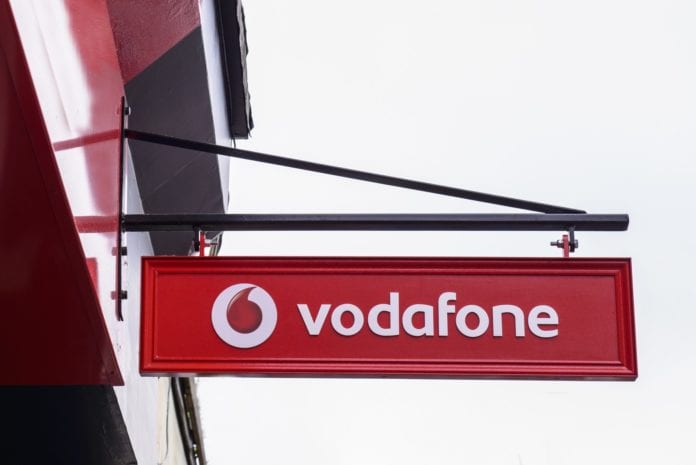The telco will trial 5G technology in Milan using spectrum in the 3.6-3.8 GHz band
Vodafone Italia, a subsidiary of U.K.-based telecoms group Vodafone, has officially launched its project to test 5G technologies via the 3.6-3.8 GHz band in the city of Milan. Vodafone Italy’s CEO Aldo Bisio said Vodafone will be working with a total of 28 partners on the project, which is budgeted at 90 million euros ($106 million).
The Italian telco said the network will cover 80% of the city and surrounding metropolitan areas by the end of next year and 100% by 2019.
Vodafone Italia and network infrastructure vendor Huawei recently announced the completion of a technique to improve the range of high frequency spectrum as part of their pre-standard 5G trials in Milan.
The companies recently revealed they had reached download speeds of 2.7 Gbps and a latency of just over a millisecond in the first live end-to-end 5G data connection in Italy. Italy’s Ministry for Economic Development has made frequencies available to Vodafone so that it can trial pre-standard 5G in Milan. An end-to-end test network has been built for that purpose.
Huawei and Vodafone have completed the verification of the uplink and downlink decoupling solution based on the end-to-end 5G network, including RAN, core network and terminals.
Vodafone said it expects to launch 5G services in 2020, in markets where it has appropriate spectrum, once the standard is agreed by 3GPP and compatible telecoms equipment and devices are available.
Earlier this year, Telecom Italia signed a deal with the Municipality of Turin for the deployment of pre-standard technologies in the city. The telco said Turin will become the first Italian city and one of the first in Europe to have a 5G mobile network.
The deal calls for Telecom Italia to begin installing 100 small cells across central parts of Turin during 2017, with plans to add 200 “ultrabroadband sites” and support from the telecom operator’s fiber infrastructure. The trial is expected to support up to 3,000 users, with plans to provide smart city services including public security, the management of public transport fleets, remote surveillance solutions and virtual reality to support tourism.
In September, Italian telco Fastweb signed an agreement with the Rome city council to begin trials of 5G and future Wi-Fi technologies in 2018.
The primary aim of the agreement is to build an IoT and smart city-focused network in parts of Rome by 2020. Under the terms of the deal, Fastweb will develop a platform to support services and applications in the areas of intelligent mobility, remote sensing, industry 4.0, tourism and video surveillance.
Also in September, TIM and Fastweb, together with Chinese vendor Huawei, said the Ministry of Economic Development has awarded spectrum in the 3.6-3.8 GHz frequencies to trial 5G technologies in the cities of Bari and Matera.
The connectivity project stipulates the activation of the first 5G use scenarios as early as June 2018, to reach 75% 5G coverage of the area by the end of the same year, and full coverage of the two cities by the end of 2019.
Some areas to be covered by this 5G initiative in the coming years include smart city, public safety, environmental monitoring, industry 4.0, 5G healthcare, as well as media education and virtual reality, automotive, mobility and road safety. As part of the project, 5G technology will be tested in Bari to create one of the first Industry 4.0 ports in Italy, improving its security, access control and logistics by using IoT solutions coupled with digital automation.

